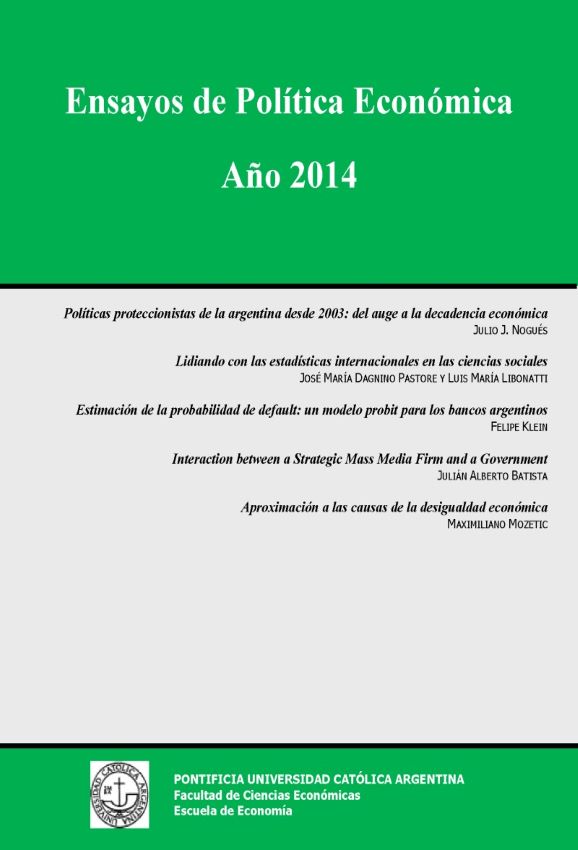Approach to the causes of economic inequality
Keywords:
Economic development, income distribution, regional analysis, international development connectionsAbstract
The following paper will try to present an alternative approach to the economic inequality problem. To do so, a wide range of topics under a macroeconomical perspective will be analysed, including: the economic development, rent distribution amongst workers, a regional view of the economy, and the international connections of development. The stated hypotheses concern the relationship between economic growth and inflation; also, how does an increase in the economically active population affect the distribution of incomes. In addition, the author shall reach numerous conclusions, such as the dichotomy between the short and long terms on inflation, the increase in inequality when the GDP of underdeveloped countries increase, and the
inverse relationship between economically active population and the Gini coefficient.
Downloads
References
Piketty, Thomas (2014). Capital in the Twenty-First Century, Cambridge, Massachusetts London, The Belknap Press of Harvard University Press.
Kuznets, Simon (1955), Economic Growth and Income Inequality, American Economic Review 45, no. 1.
Solow, Robert (1956). A Contribution to the Theory of Economic Growth, Quarterly Journal of Economics 70, no. 1.
Romer, David (1999). Short-Run Fluctuations, Berkeley, California, University of California, Berkeley.
Bajo, Oscar; Monés, María Antonia (2000). Curso de Macroeconomía, 2ª Ed., Antoni Bosch, pp. 352 y 365.
Grupo de investigaciones del Banco Mundial (2015). Cuentas Nacionales del Banco Mundial, http://datos.bancomundial.org, Washington, The World Bank Group.
Downloads
Published
How to Cite
Issue
Section
License







 Ensayos de Política Económica
Ensayos de Política Económica